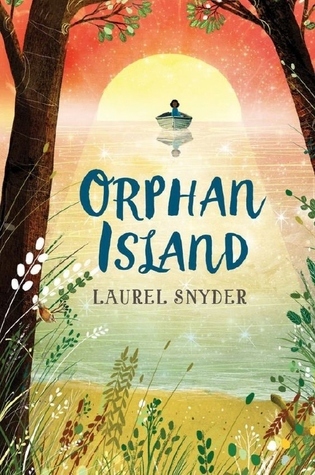Orphan Island - Laurel Snyder
On the island, everything is perfect. The sun rises in a sky filled with dancing shapes; the wind, water, and trees shelter and protect those who live there; when the nine children go to sleep in their cabins, it is with full stomachs and joy in their hearts. And only one thing ever changes: on that day, each year, when a boat appears from the mist upon the ocean carrying one young child to join them—and taking the eldest one away, never to be seen again.
Today’s Changing is no different. The boat arrives, taking away Jinny’s best friend, Deen, replacing him with a new little girl named Ess, and leaving Jinny as the new Elder. Jinny knows her responsibility now—to teach Ess everything she needs to know about the island, to keep things as they’ve always been. But will she be ready for the inevitable day when the boat will come back—and take her away forever from the only home she’s known?
Today’s Changing is no different. The boat arrives, taking away Jinny’s best friend, Deen, replacing him with a new little girl named Ess, and leaving Jinny as the new Elder. Jinny knows her responsibility now—to teach Ess everything she needs to know about the island, to keep things as they’ve always been. But will she be ready for the inevitable day when the boat will come back—and take her away forever from the only home she’s known?
Similar (in a way) to Hokey Pokey by Jerry Spinelli, Orphan Island takes an abstract look at what it means to grow up and what it means to accept that not everything is innocent and safe. (SPOILER)
When Jinny decides not to leave the island when she is supposed to, she starts a chain of events that reveal a world apart from the perfect one they've been living in for so long. There never used to be a reason to fear the bees or the snakes, but suddenly they begin to seem a little more ominous. The wind used to simply blow the children back onto land if they stepped off the cliffs, but now the wind seems to be dying down. And when she tries to take on care for more than one child, as the elder in the group, Jinny begins to realize it's not as simple to help a young person develop as she once used to think.
Though abstract (I suppose an extended metaphor, really) the story will speak to the experiences of growing up, going through adolescence, and starting to notice changes in both bodily growth and perception of the world. Orphan Island is one of those books that is important and will speak across age groups. Though marketed as middle grade, I do feel that adults will understand the larger picture more, but young readers will find much to enjoy in the world building, the everyday lives of the orphans on the island, and the relationships between each of the characters as they navigate the changing landscape following Jinny's rebellion.
I think this is a really great book, even if it does not have a particularly easy audience to define.
Recommended
(NOTE: This review is from an Advance Reader's Copy - Out May 30, 2017)

Comments
Post a Comment